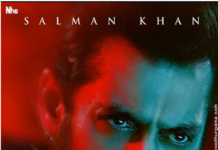President Donald Trump’s phone call to Prime Minister Narendra Modi on Tuesday simply confirmed the perception that the India-US relationship is set to strengthen to a higher plane in the coming years.
The US president called the Indian prime minister a “a true friend and a partner in addressing challenges around the world” and invited him to Washington later this year.
The conversation is consistent with the new administration’s outlook towards India and takes off from Barack Obama’s Pivot to Asia.
During a Senate Committee hearing earlier this month Trump’s nominee for secretary of defence James Mattis had called ties with India “of utmost importance” and indicated that Washington would pursue a long-term strategic partnership with New Delhi to stabilise the Asia-Pacific region. A deeper cooperation on defence and security is driven not only by a shared mistrust of China but also, as Mattis clarified in his written submission, “shared democratic values”.
It is quite clear that in Modi’s ‘Act East’ policy, the Trump administration sees a meatier role for New Delhi in regional strategic affairs. It doesn’t require reiteration that China poses a huge problem for India and US, albeit in different ways.
The China-Pakistan axis poses a huge security issue for New Delhi, which has also found it tough to cope with Beijing’s new muscular foreign policy. For the US, a burgeoning trade imbalance and China’s territorial aggression over South China Sea have proven to be areas of immense vexation.
This topic was discussed on Tuesday became quite clear from the statement that White House has subsequently released.
“They (both leaders) also discussed security in the region of South and Central Asia. (Trump) and (Modi) resolved that the United States and India stand shoulder-to-shoulder in the global fight against terrorism” according to the statement.
Modi has spoken of the warmth of the conversation in a series of tweets since.
Tuesday was a special day to hold their conversation. Nikki Haley becamethe first Indian American to get a cabinet-level appointment when the
Senate approved on that day Trump’s nomination of her to be the USambassador to the United Nations.
On Monday, Trump appointed Ajit Pai to be the chairman of the FederalCommunications Commission, the powerful agency that regulates mobilephones and the spectrum, telephones, radio, television and cable.
A third senior administration appointee of Trump is Seema Verma, whowill be in charge of the government healthcare programmes and have akey role in reforming President Barack Obama’s health insurance plan.

Readers like you, make ESHADOOT work possible. We need your support to deliver quality and positive news about India and Indian diaspora - and to keep it open for everyone. Your support is essential to continue our efforts. Every contribution, however big or small, is so valuable for our future.










